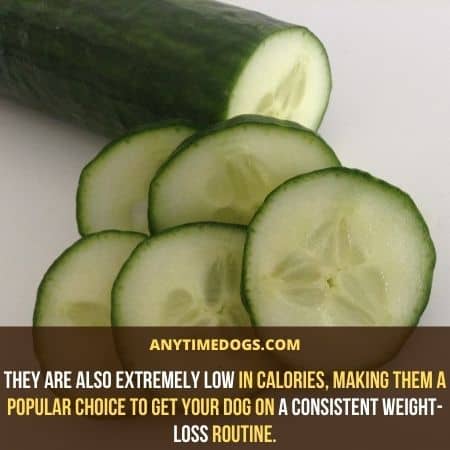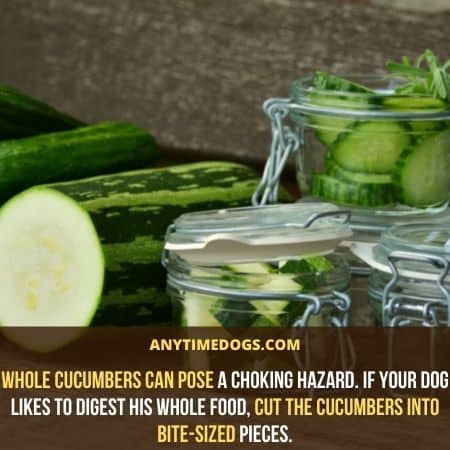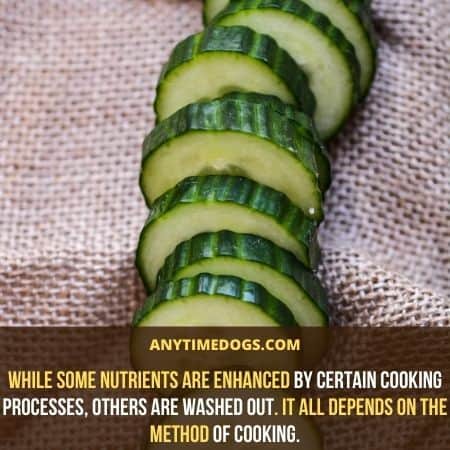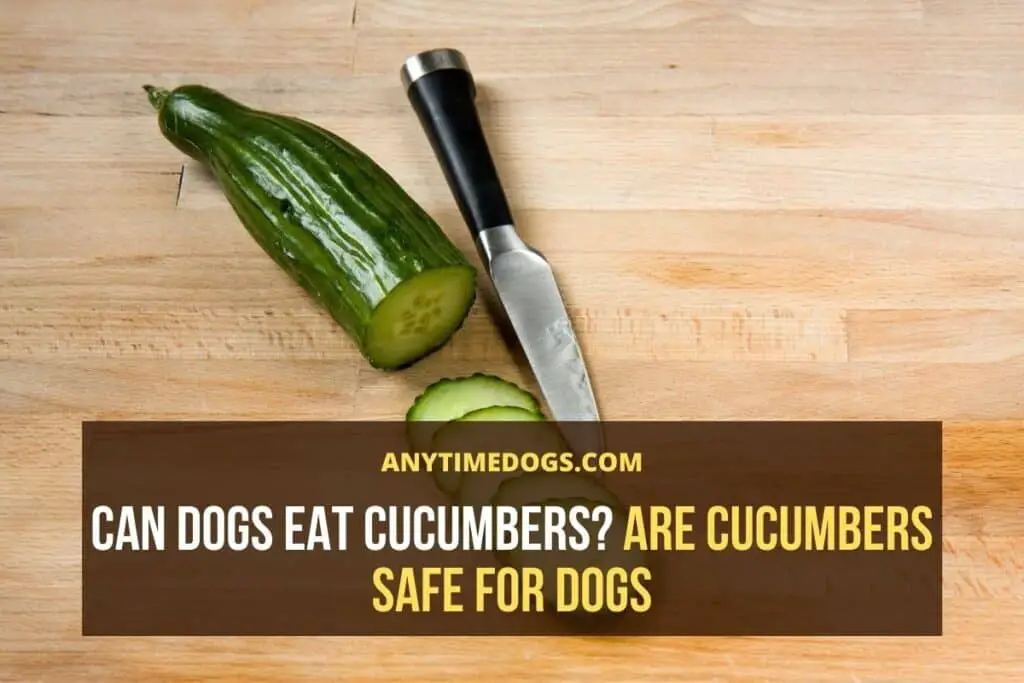Cucumbers are a healthy and refreshing addition to many human meals, from sandwiches to salads. But what about your canine companion? Can dogs eat cucumbers? The good news is that cucumbers are safe for both you and your pet companion.
Cucumbers are technically a type of fruit that is low in calories, filling, and high in hydrating water content. They are related to zucchini, some melons, squash, and pumpkin. They grow all over the world and can be found in the produce sections of most supermarkets all year.
Cucumbers are high in fiber, low in calories, and contain vitamins C, K, B, and a variety of minerals such as potassium, manganese, copper, and calcium. Let’s read what secrets cucumbers are hiding in it.
If you are a dog parent, don’t forget to read more about dogs having pistachios, watermelon, plums, raspberries, and mango.
Can Dogs Eat Cucumber? Benefits of Cucumbers
The main advantage of cucumbers is their high water content. Cucumbers contain approximately 96 percent water, making them an excellent way to provide extra hydration to your dog.

They are also extremely low in calories, making them a popular choice to get your dog on a consistent weight-loss routine.
1) Fiber:
Cucumber skin or crust contains the majority of the soluble fiber. This means it absorbs water as it passes through the digestive system. Soluble fiber promotes the passage of food through your dog’s digestive tract and can improve stool quality.
2) Vitamin C:
This effective antioxidant seeks out and destroys free-radical molecules that can harm cells. It also helps the immune system of your dog by reducing inflammation, fighting some cancers, and slowing the aging process.
3) Potassium:
This essential mineral keeps your dog’s kidneys in good working order. It also promotes healthy heart and muscle function, as well as a well-functioning digestive system.
4) Magnesium:
This micro mineral aids in the breakdown of proteins and fatty acids of your dog. It also aids in energy production and the maintenance of ligaments and bones.
5) Molybdenum:
Molybdenum is a micronutrient that is necessary for the normal cell function of dogs. It metabolizes carbohydrates and protects the body from excessive copper.
Can Dogs Eat Cucumbers? Risks of Eating Cucumbers
The only issue with your dog eating cucumbers is that your dog might love them too much and eat too many of them. This could result in overeating or choking, both of which are terrible ways to ruin a tasty meal.
Cucumbers, like any other treat, can cause stomach upset. Cucumbers skin and seeds can be irritating to a dog’s stomach, so removing those items may allow a more sensitive dog to enjoy this fruit.

Whole cucumbers can pose a choking hazard. If your dog likes to digest his whole food, cut the cucumbers into bite-sized pieces.
When introducing cucumbers to your dog, start with a small amount to ensure that your dog digests them properly.
How Many Cucumbers Are Safe for Your Dog?
You should add 10% of the cucumbers to your dog’s diet as recommended by veterinarians. Treats, such as raw vegetables and fruits, can account for up to 10% of your dog’s daily calorie intake. Fresh cucumbers contain approximately 1% sugar by weight.
One cup of chopped cucumbers contains approximately 1 gram of sugar, 1 gram of dietary fiber, and 16 calories. Cucumbers are therefore a good treat option for dogs on a low-calorie diet or with diabetes.
Cucumbers, as a low-calorie food, make excellent training treats and can be used as a topper on your dog’s regular dinner. Allow your dog to share a slice of your salad.
Can Dogs Eat Cucumbers? Precautions of Feeding Cucumbers To Your Dog?
If your dog enjoys cucumber, you can prepare it in the following ways. These suggestions will also assist dog owners in making cucumbers a tasty treat for their dogs.
1) Organic Cucumbers:
Organic products are always preferable for dogs. Many non-organic fruits and vegetables contain harmful pesticides, which can be harmful to your dog. Choosing organic cucumbers is more environmentally friendly and healthier.
2) Always Wash Before Serving:
It is critical to wash your fruits and vegetables before serving them to your dog. Before serving, thoroughly rinse and wash your cucumbers to remove any stray germs from the long journey from farm to store to your home. Clean food is better for you and your dog!
3) Raw or Cooked Cucumber:
Cucumbers can be served raw or cooked. it is entirely up to your dog’s preferences. As a general rule, raw cucumber is the easiest to prepare and retains the most nutritional value. There is also a bonus of a little crunch, which many dogs enjoy.

While some nutrients are enhanced by certain cooking processes, others are washed out. It all depends on the method of cooking. Just make sure the pieces are small enough for your dog to eat!
4) Avoid Seasoning:
Cucumbers are beneficial to your dog, but many spices are not. A lot of seasoning can be too much for your pup’s digestive system.
Cucumbers are fine on their own, but a pickle is probably not good for your dog because the fermenting process fills a cucumber with a lot of sodium and spices. Keep the ingredients simple when cooking for your dog.
5) Use as A Treat:
A cucumber shouldn’t be the only thing your dog eats in a day, but if they love it, make it a training treat. You can cut the cucumber into small pieces to encourage your dog to learn a new trick while also feeding them something healthy!
It’s a simple way to keep the total amount of fruits and vegetables in your dog’s diet to around 15-20% of cucumbers.
Can Dogs Eat Cucumbers? Conclusion:
Do you still want to know if dogs can eat cucumbers? The answer is that they certainly can! Simply start with a small amount and remove the skin and seeds first. Don’t give your dog more than 10% of its daily calorie intake.
Depending on the size and weight of your dog, cut the cucumber into slices or small pieces as well. Larger pieces of cucumber, or an entire cucumber, can pose a serious choking hazard to dogs.

